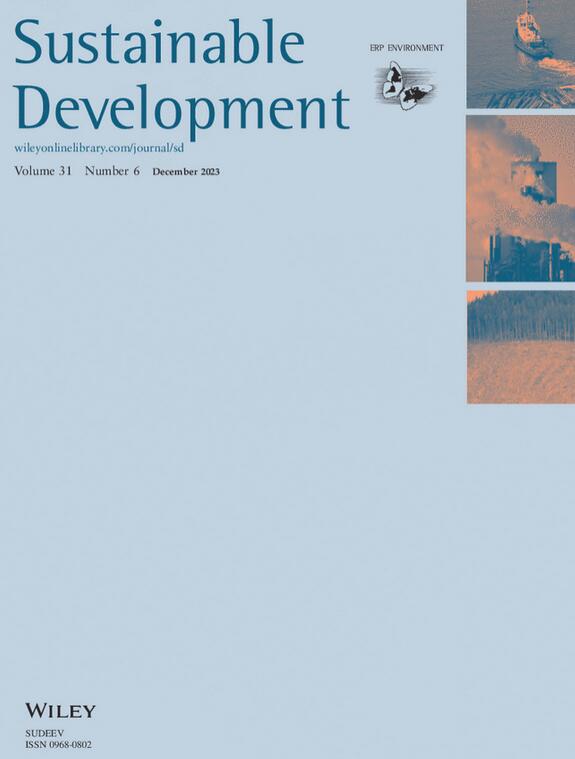环境知识、政策和法规对水资源管理的作用:态度、认知和可持续消费模式的中介调节作用
IF 9.9
1区 环境科学与生态学
Q1 DEVELOPMENT STUDIES
引用次数: 0
摘要
水是地球的命脉,可持续用水是为子孙后代保护这一稀缺资源和维护环境可持续性的关键。在本研究中,我们调查了环境知识(EK)、环境政策和法规(EPR)、对水资源管理计划的态度(APWRMP)、感知水质(PWQ)和可持续消费(SC)之间的关系,通过将计划行为理论(TPB)的理论框架与水资源管理计划(WMP)的概念相结合,丰富了现有文献。这种整合形成了一个全面的模型,阐明了可持续消费的影响因素。此外,本研究还在中国部分地区的特定背景下调查了这些关系,填补了现有文献中的地域空白。在样本量为(N = 336)的参与者中,我们采用偏最小二乘法结构方程模型(PLS-SEM)来探索所提议模型中的复杂关系。研究结果证实了假设的关联,验证了 EK 和 EPR 对 APWRMP 和 SC 的实质性积极影响。此外,我们还观察到公共工程质量显著加强了村民对水资源 SC 的认知和态度之间的联系。我们的研究解释了个人在做出可持续用水决策时的行为和态度背后的多方面动态。本文章由计算机程序翻译,如有差异,请以英文原文为准。
The role of environmental knowledge, policies and regulations toward water resource management: A mediated‐moderation of attitudes, perception, and sustainable consumption patterns
Water is the lifeblood of our Earth, and sustainable water consumption is the key to preserving this scarce resource for future generations and upholding environmental sustainability. In this study, we investigate the relationship between environmental knowledge (EK), environmental policies and regulations (EPR), attitudes toward water resource management programs (APWRMP), perceived water quality (PWQ), and sustainable consumption (SC), enriching the existing literature by integrating the theoretical framework of the theory of planned behavior (TPB) alongside water management program (WMP) concepts. This integration forms a comprehensive model clarifying the influences on SC. Furthermore, this study investigates these relationships within the specific context of select regions in China, addressing a geographical gap in the current literature. With a sample size of (N = 336) participants, we employ partial least squares structural equation modeling (PLS‐SEM) to explore the complex relationships within the proposed model. The finding confirms the hypothesized associations, validating the substantial positive impact of EK and EPR on APWRMP and SC. Additionally, we observe that PWQ notably strengthens the link between the perception and attitude of villagers toward SC of water. Our study explains the multifaceted dynamics underlying individuals' behavior and attitude in making decisions concerning sustainable water consumption.
求助全文
通过发布文献求助,成功后即可免费获取论文全文。
去求助
来源期刊

Sustainable Development
Multiple-
CiteScore
17.30
自引率
11.20%
发文量
168
期刊介绍:
Sustainable Development is a publication that takes an interdisciplinary approach to explore and propose strategies for achieving sustainable development. Our aim is to discuss and address the challenges associated with sustainable development and the Sustainable Development Goals. All submissions are subjected to a thorough review process to ensure that our readers receive valuable and original content of the highest caliber.
 求助内容:
求助内容: 应助结果提醒方式:
应助结果提醒方式:


